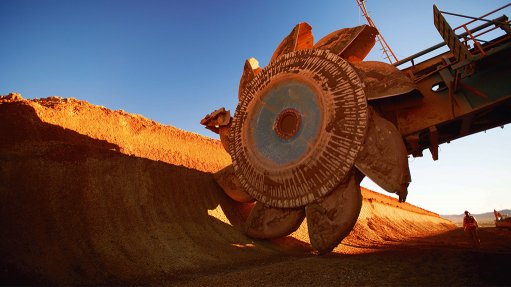SA among nations emerging as top African startup, investment hubs
Several African countries are quickly emerging as leading startup and investment hubs to watch, says early-stage, high-growth technology investment and advisory firm Havaic managing partner Ian Lessem.
Startups in Nigeria, Kenya, Egypt and South Africa raised a total of $625-million in funding in 2020.
Of those, Kenyan startups raised $191-million, the most of any African country, he says, citing data from Disrupt Africa’s African Tech Startup Funding Report for 2020, which shows that Nigeria secured $150-million, South Africa $142-million and Egypt $141-million in what was described a record year of funding activity in the African tech startup ecosystem.
In 2015, 125 tech startups raised $185-million in funding. By 2020, there were 397 startups raising $701-million.
While Disrupt Africa highlights that the bulk of funding activity continues to take place in the ‘big four’ markets of Nigeria, Kenya, South Africa and Egypt, there is growth in activity in other ecosystems.
Collectively, Nigeria, Kenya, South Africa and Egypt’s fundraising activities accounted for 77.3% of funded ventures on the continent, a decline from 83.6% in 2019, owing to a larger percentage of startups from outside the four markets raising funds.
Distinct startup geographies are emerging in Africa, each with the potential to become its own powerhouse, says Lessem.
“Havaic sees Southern Africa, dominated by South Africa; Anglophone West Africa, led by Nigeria; Francophone West Africa, dominated by Côte d’Ivoire and Senegal; East Africa, led by Kenya; and North Africa, dominated by Egypt, as key African geographies to pay close attention to. Each are quite different, with some of them tackling more regional challenges and others offering globally scalable solutions.”
A diversity of businesses are emerging in critical sectors such as e-health, fintech, security and education, as African startup investment continues its upward trajectory, having increased year-on-year for the past five years.
He also points to Financial Times insights and analysis division fDi’s inaugural African Tech Ecosystems of the Future Ranking, which placed South Africa first overall, with first place rankings in economic potential, startup status and business friendliness, and recognised Cape Town as the technology capital of Africa, which topped the international rankings for foreign direct investment (FDI) strategy.
The report, produced in partnership with research firm Briter Bridges, notes that South Africa, which is home to one of the most developed venture capital (VC) networks and the oldest startup incubator on the continent, the Cape Innovation and Technology Initiative, recorded the second-highest number of startups behind Nigeria and received the largest number of FDI projects in the software and information technology services sector.
Kenya took second place, both overall and in economic potential, with the highest number of coding schools on the continent and home to the most famous fintech to emerge from the continent, M-Pesa, the success of which launched Kenya’s tech ecosystem into the spotlight, with incubators, hubs and VC subsequently flowing to the country.
Nigeria topped all locations for the number of startups, with many of them operating within the fintech sector leveraging the under-provision of banking services in the country.
Lessem adds that Africa’s rapid urbanisation is a welcome development as cities foster greater economic potential, business collaboration and the technological innovation needed to leapfrog traditional infrastructure, which can lead to the creation of thriving tech ecosystems.
“West African hubs like Lagos have benefited hugely from locals being skilled abroad and returning home, where a young, bourgeoning middle class are open to new fintech propositions as we have seen from the likes of Flutterwave.”
In Nairobi, an influx of FDI and financing from national development finance institutions, coupled with international skills transfers, have contributed to creating a flourishing startup environment.
He adds that Cairo’s access to favourable funding and product distribution from the Middle East is unique on the continent.
“Egypt’s large local customer base and proximity to major international hubs in the United Arab Emirates, Qatar, Oman and Saudi Arabia make it a strong business-to-business and business-to-business-to-consumer (B2B2C) regional player.”
South Africa’s strong blue chip corporate base and financial and digital infrastructure have ensured the country’s startups have been able to enter developed markets with their seamless tech competing toe-to-toe in international markets.
“In both English- and French-speaking West Africa, there are significant B2B2C opportunities, thanks, in part, to the development and growth of cities like Dakar, Abidjan and Lagos,” Lessem continues.
“Ultimately, massive improvements in infrastructure, maturing financial markets and broader access to higher education are laying the foundation for Africa’s tech hubs and signal an exciting future for the continent’s startups who prove time and time again they can compete with the best in Silicon Valley, London and Singapore.”
Havaic’s own investment thesis is centred on investing in local African tech businesses that have the ability to scale and service both regional and global markets.
“Our ability to invest locally, strategically nurture and help internationalise our portfolio is what sets us apart. More than ever before, investing and supporting local, growing innovation with the potential for global elevation, is a smart investment decision at the heart of Africa’s future,” he concludes.
Comments
Press Office
Announcements
What's On
Subscribe to improve your user experience...
Option 1 (equivalent of R125 a month):
Receive a weekly copy of Creamer Media's Engineering News & Mining Weekly magazine
(print copy for those in South Africa and e-magazine for those outside of South Africa)
Receive daily email newsletters
Access to full search results
Access archive of magazine back copies
Access to Projects in Progress
Access to ONE Research Report of your choice in PDF format
Option 2 (equivalent of R375 a month):
All benefits from Option 1
PLUS
Access to Creamer Media's Research Channel Africa for ALL Research Reports, in PDF format, on various industrial and mining sectors
including Electricity; Water; Energy Transition; Hydrogen; Roads, Rail and Ports; Coal; Gold; Platinum; Battery Metals; etc.
Already a subscriber?
Forgotten your password?
Receive weekly copy of Creamer Media's Engineering News & Mining Weekly magazine (print copy for those in South Africa and e-magazine for those outside of South Africa)
➕
Recieve daily email newsletters
➕
Access to full search results
➕
Access archive of magazine back copies
➕
Access to Projects in Progress
➕
Access to ONE Research Report of your choice in PDF format
RESEARCH CHANNEL AFRICA
R4500 (equivalent of R375 a month)
SUBSCRIBEAll benefits from Option 1
➕
Access to Creamer Media's Research Channel Africa for ALL Research Reports on various industrial and mining sectors, in PDF format, including on:
Electricity
➕
Water
➕
Energy Transition
➕
Hydrogen
➕
Roads, Rail and Ports
➕
Coal
➕
Gold
➕
Platinum
➕
Battery Metals
➕
etc.
Receive all benefits from Option 1 or Option 2 delivered to numerous people at your company
➕
Multiple User names and Passwords for simultaneous log-ins
➕
Intranet integration access to all in your organisation


















